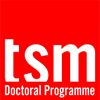Les informations relatives à cette formation sont uniquement disponibles sur la version anglaise du site.

Master Finance
Track Finance - M1
Intégrer une formation rigoureuse et découvrir tous les fondements de la finance





